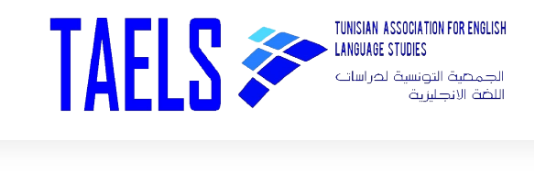
The Tunisian Association for English Language Studies (TAELS) organizes its 8th International Conference on:
“Rhetorics of Displacement and Alienation”
February 23-24, 2024
Venue: Sousse – Tunisia
Call for Abstracts
Displacement is a common theme in literature and culture studies, referring to the experience of being uprooted from one's home or familiar surroundings. This can occur due to a variety of factors, such as war, economic hardship, or political persecution. Displacement can have a profound impact on an individual's sense of identity and belonging, as well as on the communities and societies they leave behind.
In literature, displacement is often explored through the experiences of characters who are forced to leave their homes and adapt to new environments. This can be seen in works such as Chinua Achebe's Things Fall Apart, which depicts the impact of colonialism on a Nigerian village, or Jhumpa Lahiri's The Namesake, which follows the struggles of a young Indian-American man as he navigates the complexities of cultural identity. These works highlight the challenges of displacement, including feelings of isolation, loss of cultural heritage, and the struggle to find a sense of belonging in a new place.
In culture studies, displacement is often examined in the context of migration and diaspora. This can involve analyzing the experiences of immigrant communities, as well as the cultural products and practices that emerge from these communities. For example, scholars may study the ways in which music, food, and language are used by diasporic communities to maintain connections to their cultural heritage, even as they adapt to new environments. By examining displacement in literature and culture studies, scholars can gain a deeper understanding of the complex social, political, and cultural factors that shape the experiences of individuals and communities around the world.
In the context of displacement and alienation, media studies can shed light on how media representations shape our understanding of these experiences. Media can both reflect and perpetuate dominant narratives about displacement and alienation, and can also provide a platform for marginalized voices to tell their own stories. Additionally, media technologies can help bridge distances between people who are geographically dispersed, providing a sense of connection and community in the face of displacement and alienation. At the same time, the proliferation of digital media can exacerbate feelings of isolation and dislocation. Media studies can help us better understand the complex and often contradictory ways in which media shapes and is shaped by experiences of displacement and alienation.
Displacement and alienation can play a significant role in language learning as well, particularly for individuals who are learning a new language in a new cultural context. The experience of being displaced from one's home culture and language can lead to a sense of dislocation and a feeling of being out of place in the new environment. This, in turn, can affect one's motivation to learn the new language, as well as one's ability to learn and use the language effectively. The process of language learning itself can also contribute to feelings of alienation, as learners may struggle to communicate effectively and may face discrimination or exclusion based on their language proficiency. On the other hand, language learning can also provide a means of coping with displacement and alienation, as it can facilitate communication and connection with others in the new environment. Effective language learning programs should take into account the experiences of displacement and alienation that learners may bring with them, and provide support and resources to help learners overcome these challenges and succeed in their language learning goals.
It is within this framework that the steering committee welcomes individual and panel proposals related, but not limited, to the following topics:
· Rhetorics of migration and diaspora
· Migration experiences: challenges of integration and cultural assimilation
· Cultural production and experiences of displacement and alienation
· Displacement and identity formation
· Displacement and trauma
· Space, place and gendered mobility
· Language learning: cultural alienation and linguistic relocation
· Memory and the topographies of remembering and forgetting
· Media and narratives of displacement and alienation
· Political rhetoric and public perceptions of displacement and alienation
—
Submission
We welcome individual abstracts for 20-minute presentations and complete panel proposals of three or four papers treating a similar theme or topic. Priority will be given to panel proposals.
Participants are kindly invited to submit their proposals via one of these links:
- Link 1 (individual proposals)
- Link 2 (panel proposals)
The deadline to submit proposals isDecember 17, 2023. Notifications of acceptance will be communicated by December 24, 2023.
TAELS editorial board will select a number of papers that will be published after peer-reviewing in a collective volume on the proceedings of the conference.
—
Registration
Tunisian Participants
International participants
Early bird (before January 7, 2024)
Regular (before January 14, 2024)
Early bird (before January 7, 2024)
Regular (before January 14, 2024)
300 TND
350 TND
300 Euros
350 Euros
The fees include :
· One full-board night at a four-star hotel in Sousse: check-in February23; check-out February24.
· Access to all conference sessions and workshops;
· Two coffee breaks;
· Conference bag;
· Certificate of participation;
· Submission of the paper to peer-reviewing;
· A hard copy of the conference proceedings after publication.
The fees include :
· Two full-board nights at a four-star hotel in Sousse: check-in February23; check-out February25.
· Access to all conference sessions and workshops;
· Two coffee breaks;
· Conference bag;
· Certificate of participation;
· Submission of the paper to peer-reviewing;
· A hard copy of the conference proceedings after publication.
Payment Modes
1. Option 1: Bank transfer
Bank account details
IBAN: TN 59 1070 5007 0481 8407 8872
Bank address: Rue Hédi Nouira – 1001 Tunis - Tunisia
Swift code: STBKTNTT
TAELS Address: ISLG, Rue Ali Jemel, 6000, Gabes– Tunisia
2. Option 2: Western Union transfer
Recipient: AbdelhamidRhaiem, TAELS treasurer
ISLG, Rue Ali Jemel, Gabes 6000
Tunisia